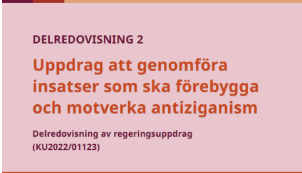
The European Roma Rights Centre as a part of the International Network for Economic, Social and Cultural Rights (ESCR-NET) has requested a judicial review of the Social Cards Law in Serbia. We believe the Social Cards Law is an example of a dangerous global trend of digitalisation of welfare state systems that punishes and violates the human rights of the most marginalised communities, particularly Roma. The procedure was initiated by the A11 Initiative. The ESCR-NET filed a legal opinion on the Social Cards Law before the Constitutional Court of Serbia on 29th November 2022.
”Even though it has been only several months since the law came into effect, it is evident that the Social Cards Law disproportionately affects Romani women and men living in marginalised communities. Not only are Roma being burdened with overprocessing of personal data, they are being cut off from the welfare system” said ERRC Legal Consultant, Andrea Čolak.
”Data on where and how they live – if they have adequate housing, electricity, or water – remains invisible to the system. The Social Card Law is a discriminatory tool that pushes the most vulnerable Roma into further social isolation and deepens their poverty. The potential consequences of this law could be devastating, as many families could lose their only regular source of income thus risking their children being taken away from them due to poverty.”
The Social Card Law entered into force on 25th February, 2021, with the goal to create a “fairer distribution of money for the most socially endangered groups and establish better control of social benefits”. The Serbian government envisions an “increase in the social visibility of the underprivileged so that they could exercise their right to state aid in a timely and efficient manner.”
We argue that the Social Card Law unduly restricts the right to social security of the communities most in need of these benefits, particularly Romani communities. Detailed profiling is used to exclude recipients rather than to increase inclusion and expand the reach of social programs. The overly broad reach and vague wording of the Law undermine data rights. Growing evidence that data-driven systems perpetuate inequalities and have discriminatory effects on already marginalised groups suggests that the Social Card Law is likely to reinforce the structural discrimination faced by Romani communities. Its collection of sensitive data creates an intrusive digital surveillance system, posing severe risks to rights to privacy and data protection, and violates the right to equality and non-discrimination. Given the over-representation of Romani communities in the welfare system, the Social Card law will disproportionately harm Romani people as well as further entrench antigypsyism in Serbia.
The Social Card Law also contravenes Serbia’s obligations under international human rights agreements, such as the European Convention on Human Rights and the International Covenant on Economic, Social and Cultural Rights.
Additional information:
- The joint press release of ESCR-NET can be found here.
- The joint legal opinion in English and Serbian.
- A video filmed by the A11 Initiative, about welfare recipients who were removed from the system after the implementation of the Social Card Law in Serbia. (In Serbian with English subtitles).
- Flyer of the public event on Digitalization of Social Security (Belgrade, 30 November) here. To participate online, register here.
Källa: ERRC
Redaktionen
redaktionen@dikko.nu
Att vara en oberoende tidning kostar pengar så vill du hjälpa oss med att betala vårt fika får du gärna swisha en slant till 123 242 83 40 eller bg: 5534-0046
Vill du annonsera eller sponsra, synas eller höras i våra media?
Kontakta oss på redaktionen@dikko.nu
eller ring 0768 44 51 61
IBAN: SE19 9500 0099 6042 1813 4395
BIC: NDEASESS




